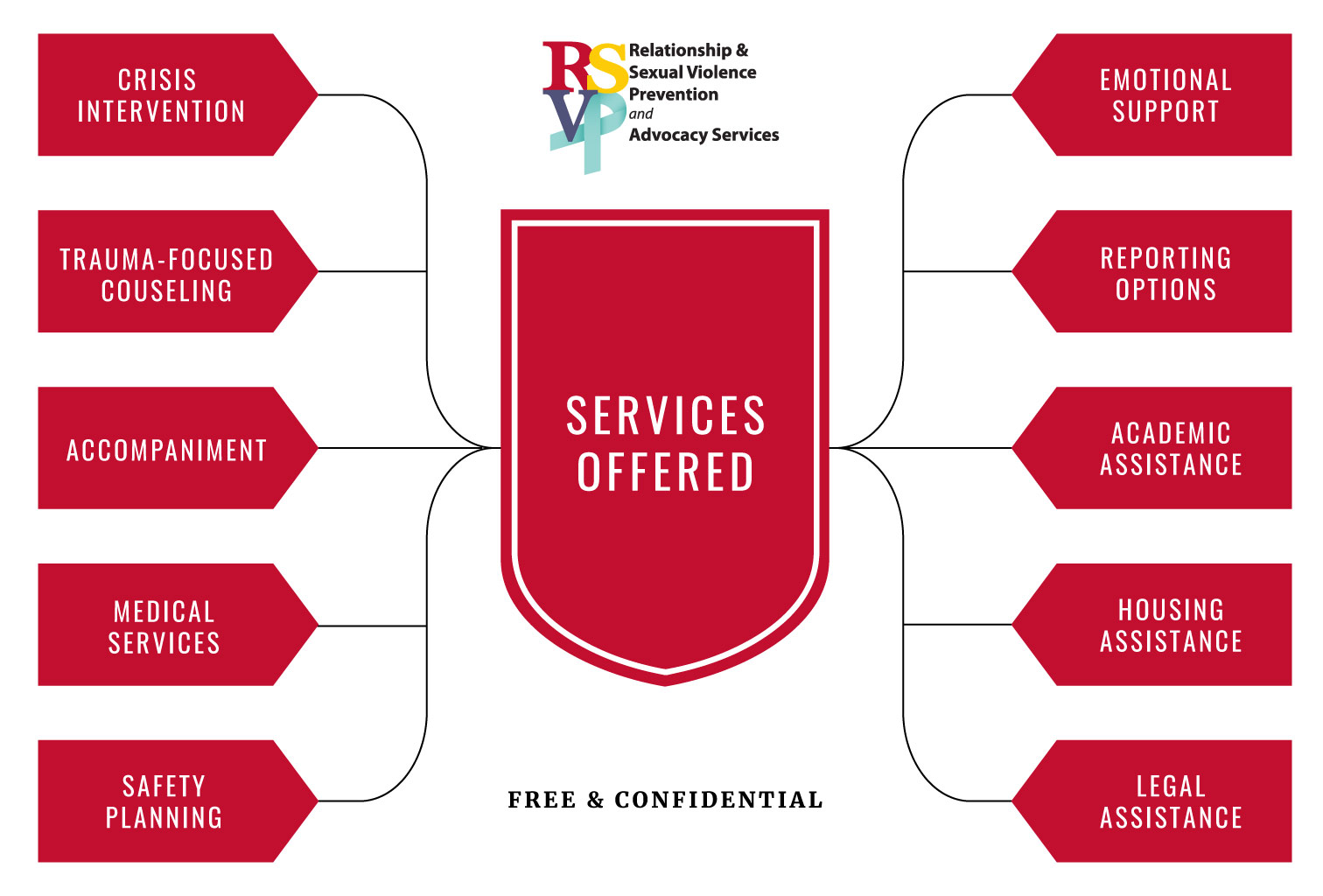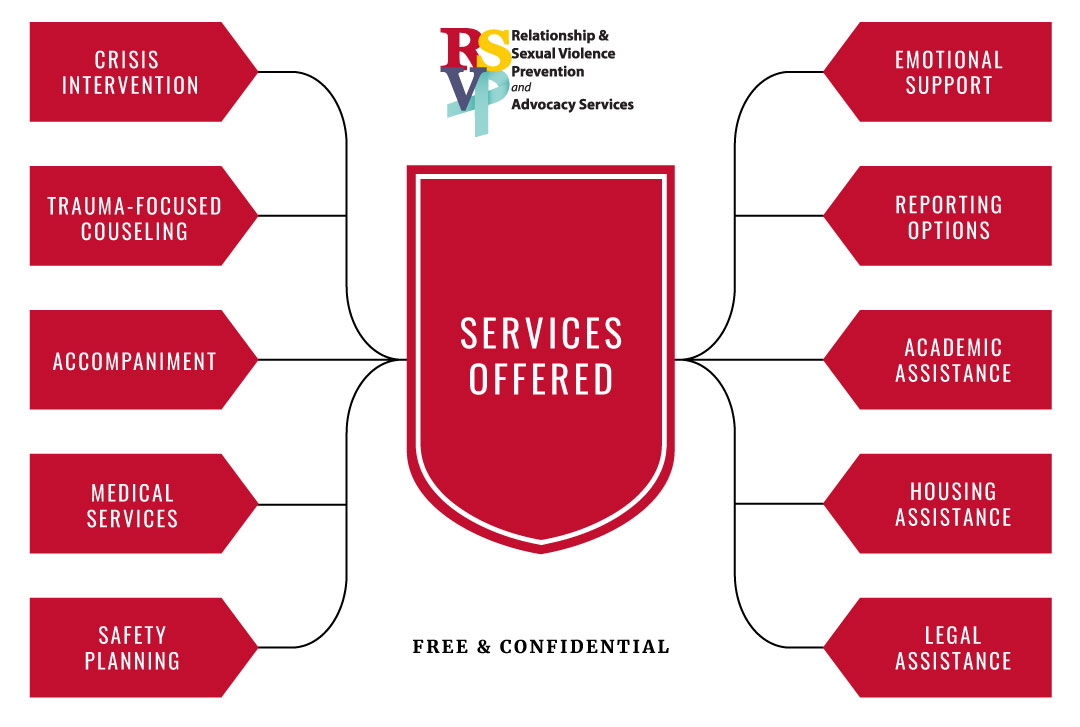RELATIONSHIP & SEXUAL VIOLENCE PREVENTION


Want to read more about what RSVP has to offer?
Please review our RSVP Toolkit
Want to hear more about what RSVP is about?
Please listen to our Podcast Episode
Feel free to walk into our office anytime Monday-Friday 8am - 5pm and ask to speak to an RSVP advocate. We are located in the Fontaine Center on the first floor of the UHC.
24 hour hotline: 706-542-SAFE (7233)
If you’d prefer for us to reach out to you, please fill out this contact form and one of our confidential advocates will reach out to you soon.
For any questions or general information, please call 706-542-8690.
FREQUENTLY ASKED QUESTIONS
RSVP serves all individuals who identify as a survivor of interpersonal violence and/o sexual assault. RSVP also serves individuals who identify as secondary survivors such as roommates, friends, and/or loved ones.
RSVP services are free and confidential. This means that the only way individuals will know if you’ve engaged with RSVP is if you tell them or give RSVP the consent to contact individuals/departments on your behalf. We take confidentiality very seriously at RSVP as survivors do not need to have an additional worry on their plate.
At RSVP we do not blame the survivor for what has occurred and this information does not change the services you receive. We support survivors no matter the circumstances. If law enforcement reports are made, these items will not be held against the survivor as our campus and community partners care about the crime that occurred against the survivor rather than getting the survivor in trouble.
